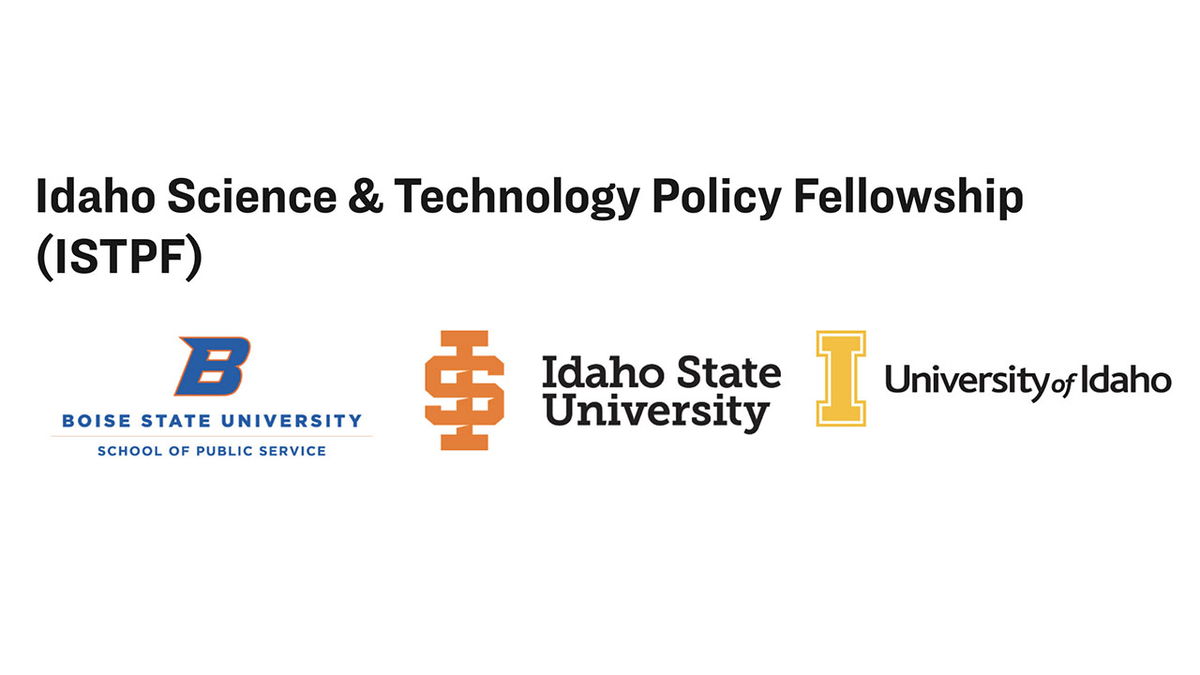Idaho science and technology policy fellowship places scientists in state agencies

MOSCOW, Idaho (KIFI) — An expanded fellowship program across three Idaho universities is placing two scientists in Idaho state government agencies to bring scientific expertise to policymaking.
The Idaho Science and Technology Policy Fellowship (ISTPF) is a nonpartisan program that places scientists, social scientists and engineers in state government to learn firsthand about policymaking while using their knowledge and skills to address pressing challenges facing Idaho. The fellowship, in its third year, is a partnership between Boise State University, Idaho State University and University of Idaho. U of I’s McClure Center for Public Policy Research is the program lead.
New fellows Anna Briggs, Ph.D. and Sarah Maher, Ph.D. started their fellowships in late August. Briggs will spend her fellowship year with Idaho’s Legislative Services Offices, and Maher with the Idaho Department of Fish and Game. This is the first year that the ISTPF has placed a fellow in Legislative Services Offices. Previously, fellows have been placed with the Governor’s Office of Energy and Mineral Resources, the Governor’s Office of Species Conservation, Idaho Department of Environmental Quality and Idaho STEM Action Center.
“The Idaho Science and Technology Policy Fellowship provides a rare experience for Idaho’s scientists, social scientists and engineers to engage with policymaking and policy implementation in Idaho,” Idaho State University President Kevin Satterlee said. “In return, Idaho’s government benefits from the expertise and creativity these fellows bring. The expansion of this program provides an opportunity for the fellows to devote their considerable talents to address timely issues facing our state.”
Briggs earned a doctorate in entomology, and a master’s and bachelor’s in animal and veterinary science, from University of Idaho. Her research focused on vector diseases, studying biological factors that affect malaria parasite transmission.
Maher is an interdisciplinary researcher with expertise in magnetic studies and data analysis. She holds a doctorate in earth sciences from Scripps Institution of Oceanography, a master’s in geology and geophysics from the University of Hawaiʻi at Mānoa and a bachelor’s in physics and astronomy from the University of Victoria.
“The Idaho Department of Environmental Quality is proud to collaborate with the ISTPF program in providing exciting opportunities for fellows interested in the intersection of policy and science,” said Mary Anne Nelson, Surface and Wastewater Division Administrator at DEQ, a former host office which holds a seat on the ISTPF advisory board. “The program has recruited strong candidates who’ve provided valuable insight and assistance to our department as well as gained experience in policy evaluation and implementation. DEQ looks forward to many continued years of collaboration.”
The ISTPF has raised over $1 million to launch and grow the program. Sources of financial support for the third year include the Gordon and Betty Moore Foundation, Idaho National Laboratory on behalf of Battelle Energy Alliance, Idaho STEM Action Center, Micron Foundation, POWER Engineers, Boise State University, Idaho State University, University of Idaho and individual donors.






